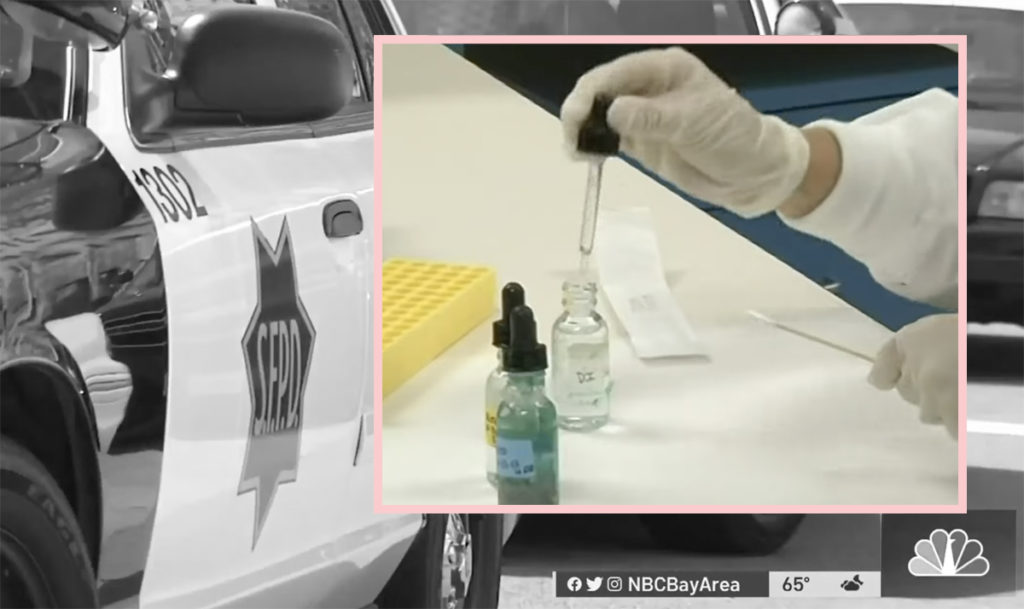[Warning: Potentially Triggering Content]
A woman is suing the city of San Francisco after police used the DNA from her sexual assault case — which she gave to help catch her rapist! — to arrest her for an unrelated property crime.
The victim, who chooses to remain anonymous, filed a lawsuit against the city Monday after the San Francisco Police Department searched their crime lab database to tie the DNA from her 2016 rape case to a burglary which took place in late 2021, according to ABC News. She explained in a March statement to KTVU:
“I didn’t know that it would be used against me. I didn’t know that that could happen. I didn’t know that was even possible. I just feel violated again.”
How traumatic for this poor woman to have such sensitive information, from a VERY sensitive situation, used against her. Even if she allegedly committed a crime, this kind of practice doesn’t seem ethical at all. You’re gonna accuse someone of a crime by getting her DNA through your own unethical means?
Related: Armie Hammer Victim Claims House of Hammer Exploits Her ‘Trauma’
We’re not the only ones put off by this. Former District Attorney Chesa Boudin explained in February how the revelation raised many privacy concerns. And Adande Pointer, lawyer for the unnamed victim, is now speaking to the Associated Press about this situation. He revealed in a Tuesday statement:
“This is government overreach of the highest order, using the most unique and personal thing we have — our genetic code — without our knowledge to try and connect us to crime.”
News of this shocking case has rippled across the nation, stirring up quite the pushback from advocates, law enforcement, legal experts, and lawmakers. According to the Associated Press, federal law forbids victims’ DNA from being submitted to the national Combined DNA Index System, however, there is no California state law forbidding local law enforcement from retaining victims’ DNA and using it for other purposes.
The problem here is clear. Many lawmakers argue the practice could potentially prevent victims from coming forward to law enforcement. The harm from rapists going free would surely outweigh any positives from charging people with, say, burglary. Right?
Change is coming, though, as last month the California legislature approved a bill which outlaws the use of DNA samples collected from victims, particularly those of sexual assault, to be used for any reason outside of identifying a suspect for that crime. The legislation would also forbid local law enforcement from retaining the DNA of victims to use in a search for unrelated crimes and for incrimination, pending Governor Gavin Newsom’s approval.
Related: Ricky Martin’s Nephew Files Sexual Assault Complaint Against Singer
On the arrest of the victim filing the lawsuit, former District Attorney Boudin explained she found the report among hundreds of pages of evidence against the victim who had been charged with the 2021 property crime, and upon discovering the source of the DNA she dropped the felony charges. Police chief Bill Scott explained his crime lab stopped the practice after receiving a complaint from the DA’s office — and immediately after changed its policies to prevent such profiling from taking place in the future. He added there were 17 crime victim profiles found in March, 11 of them being rape kits, that were linked with potential suspects of unrelated incidents, using the search database. He believes the only victim arrested was the one filing the suit.
What are YOUR thoughts on the legal quandary, Perezcious paralegals? Do you think it’s unethical? Let us know in the comments (below).
If you or someone you know is being sexually victimized, help is available through the National Sexual Assault Hotline at 1-800-656-4673
[Images via NBC Bay Area/YouTube]
Related Posts
CLICK HERE TO COMMENT-
Categories




































